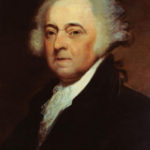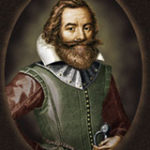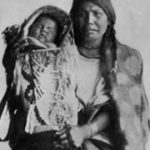By Doc Larrick
| A word we’ve been seeing and hearing lately is caucus, a Roman-looking word if there ever was one. However, the word is one of very few that can claim to be American English, a genuine New World coinage. |
| The published diaries and letters of John Adams (second POTUS) reveal the first known printed usage of the word. He mentioned in February of 1763 that a certain “caucus club” was regularly held at the home of a fellow Bostonian. Another even earlier figure in American history gives us a clue about the word. |
 |
 |
Captain John Smith, one of the Virginia leaders of the Jamestown settlement, mentions in his History of Virginia (1624) an Algonquian word he was familiar with, very similar to caucus, meaning “advice giver” or “counselor”. |
| It happens that the Algonquian tribes lived along the Atlantic seaboard and were the first to greet the early English settlers. Later, the English colonists would adopt native American words to name their secret meetings for discussing discontent with the mother country, and by the mid-19th century, caucus was well entrenched in American English as the word for a lively meeting to discuss and decide on political candidates. |
 |
By 1853 the British had adopted the term from their former subjects, and Lewis Carroll (the Alice in Wonderland author) was poking fun at “caucus” races. From there, the word spread all over the English-speaking world.
Other political words that American English adopted from the Algonquians are mugwump, “great man” (made famous in the 1884 election) and sachem “chief” (from the Tammany Hall “Boss” Tweed era ). And if you’ve ever had a pow-wow, a meeting to supervise (“look over”) a problem, you’re carrying on a long-standing American tradition.



